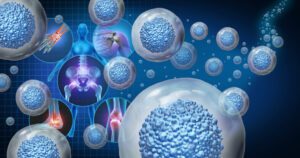Unlock your body’s innate potential for recovery with regenerative treatments. Whether you’re seeking hormone balance, cellular rejuvenation, or enhanced vitality, we’ll develop a personalized treatment plan that transforms your health.
medical Services
Regenerative and Anti-Aging Services
- Women’s Revitalization Program
- Men’s Revitalization Program
- Anti-Aging
- Bioidentical Hormone Replacement
- Skin Rejuvenation
- Peptide Therapy
- Weight Management
- IV Therapy
- Infinity Matrix Therapy
- VITTI-PURE
- EV Pure

Women’s Revitalization Program
Renewing Women’s Vitality and Confidence Carroll Total Healthcare is dedicated to helping women feel vital, healthy, and self-confident once again. Our anti-aging for women is personalized and adheres to your specific needs. We provide safe, effective treatments to reverse the effects of aging and make you look and feel younger and healthier. We will customize your anti-aging program and enable you to take control of your health and beauty. Our team is available to discuss your wants and develop the perfect plan.
Advantages of Our Program:
We offer among the most innovative anti-aging programs in the area, with the highest of patient satisfaction. Women receive the perfect anti-aging care to regain their vitality. We provide a wide range of benefits, including:
- A top physician with years of training in anti-aging medicine, regenerative medicine, and BHRT.
- Advanced, customized testing and vitality reports based on lab results. Concierge-style medical services and in-depth patient education.
- Safe and proven treatments and nutritional supplements.
Experience an Unmatched Personalized Treatment Plan
Dr. Carroll will help you design your customized treatment plan. He will partner with you throughout each step. Your plan will include any recommended nutraceuticals, hormone optimization, and lifestyle changes. Recommendations will be based on your personal health and beauty goals and your lab test results.

Men's Revitalization Program
Restoring Vitality in Men of All Ages
At Carroll Total Healthcare, we customize anti-aging programs for men to revitalize their minds and bodies. We provide safe, effective treatments and compounds devised by experienced medical professionals. Our treatments are designed to help men feel healthier and look younger. We aim to empower men to harness and control their anti-aging program so they can live better. When you reach out to us for help, we’ll begin developing a treatment plan perfect for your needs, wants, and goals.
Advantages of Our Anti-Aging Program
Our treatments are specially created to reverse the effects of aging and inspire confidence, self-esteem, and well-being. Men receive the following benefits after choosing us for their anti-aging program:
- Personalized plans based on lab results, personal goals, genetics, and current health and vitality.
- Proven treatments, peptides, compounds, and supplements.
- Innovative testing and evaluations, using the most advanced detection technology to customize anti-aging programs.
With our help, you will be able to design and personalize your plan according to what you want to achieve. Your health and goals are prioritized above all else while developing your plan. Based on your goals and your lab work, we will recommend nutraceuticals, hormone optimization, and changes to your lifestyle. We can have these therapies hand delivered directly to your address within a few days. You can pick up supplements and treatments at our office or we can deliver them right to your door.

Anti-Aging
Are you unhappy with unwelcome symptoms of aging, such as fatigue, weight gain, thinning hair, wrinkles, or sexual dysfunction? If so, simple anti-aging solutions are at your fingertips. At Carroll Total Healthcare hormone specialist Dr. Brent Carroll and his expert staff offer highly effective, holistic anti-aging treatments that help you look and feel younger. Call the office to learn more about your options.
Anti-Aging Therapy
What is anti-aging therapy? Anti-aging therapy available at Carroll Total Healthcare and Trinity Med Spa uses cutting-edge treatments to reduce bothersome signs of aging. The hormone specialists have many years of experience developing customized treatment plans for middle-aged and older adults. These plans provide superior results that take years off of your appearance. What are the benefits of anti-aging therapy? The many benefits of anti-aging therapy at Carroll Total Healthcare include:
- Younger-looking, healthier skin
- Fewer lines and wrinkles
- Fuller, thicker head of hair
- Improved sexual functioning
- Diminished vaginal dryness in women
- Reduced erectile dysfunction (ED) in men
- Weight loss
- Reduced body fat
- Smaller waist circumference
- Increases in muscle mass
- More energy
- Stronger libido
- Better workouts
- Increased bone density
- Stronger immune system functioning
Anti-aging therapy allows you to look younger, feel younger, and gain self-confidence. It can also reduce your chance of the hallmark signs of aging or developing age-related chronic diseases.

Bioidentical Hormone Replacement
Carroll Total Healthcare restores balance to the bodies of men and women through comprehensive BHRT therapy in Cumming, GA. If you don’t feel as energetic, vital, or happy as you used to, bioidentical hormone replacement therapy may be right for you. Our process involves in-depth blood analysis, medical history reviews, and physical examinations to understand the patient and establish health and wellness goals. Our experienced medical providers have rigorous training in hormone replacement and anti-aging medicine. We aim to rebalance your body and make you feel better than ever before.
How Does BHRT Work?
Bioidentical Hormone Replacement Therapy (BHRT) helps men and women manage aging and its negative impacts. Hormones can profoundly impact how we feel and how our bodies function. As we age, hormones naturally change and decline, often leading to hormone deficiencies and unpleasant symptoms. Bioidentical hormone replacement therapy serves to replenish hormones to an optimal level to reverse many of the unfavorable effects of hormone decline.
Unlike conventional hormones, bioidentical hormones are chemically identical to those produced by your body, providing optimal balancing and safety. Depending on your hormone levels, our physicians will prescribe bioidentical hormones tailored to your body’s needs. Over the period of therapy, the bioidentical hormones will help return your body’s hormones to their normal level, combating symptoms like fatigue, decreased sex drive, and moodiness. Balanced hormones can also help prevent diseases down the line, such as osteoporosis, heart disease, diabetes, memory loss, and others.
Bioidentical hormones can be custom compounded in various forms. Your medical provider will help you determine the best options for you specifically.
• Topical gels or cream
• Capsules
• Sublingual tablets or troches
• Subcutaneous injections
• Hormone pellet insertion
• Intramuscular injections
How Does BHRT Benefit Men?
Testosterone is the most important androgen (male hormone) in men. What many people do not know is that testosterone production in men has decreased significantly since the 1920s. What are the reasons for this recent decline? No one can say for sure, but studies indicate that the average man’s testosterone is 25% lower than in the 1980s.The escalating amount of chemicals being released in the environment is thought to be part of the problem, as these toxins are disrupting the endocrine system. Endocrine Disruptors such as phthalates, BPA, and dioxins, pose a threat to men’s health as they interfere with testosterone production.
Optimal Testosterone levels can offer the following health benefits:
• Better memory
• Increased Energy and Stamina
• Increased Lean Muscle Mass
• Less belly fat
• Increased Sex Drive
• Greater sense of well being
• Lowered risk of Disease
• Improved Sleep
• Improved Skin Elasticity
• Many people have long believed that levels decline as a natural consequence of advancing age, and that therefore there is nothing we can or should do about it…That’s like telling a middle-aged person that since vision typically deteriorates with age, there’s no point in prescribing glasses—or that we shouldn’t treat atherosclerosis to prevent heart attacks, because it too is an age-related phenomenon. It just doesn’t make sense!
• Millions of men needlessly suffer from low sex drive, loss of energy, and diminished enthusiasm for life—because of low levels of the male hormone testosterone.
• Testosterone is more than a ‘male sex hormone.’ It is an important contributor to the robust metabolic functioning of multiple bodily systems. Testosterone stimulates and maintains muscle and bone growth, for example—many men don’t realize that low T puts them at increased risk for osteoporosis with advancing age. It also stimulates red blood cell production, helping to prevent anemia. Testosterone levels are reduced in type 2 diabetes and metabolic syndrome; therapy with testosterone in these conditions can reduce LDL cholesterol, blood sugar, glycated hemoglobin, and insulin resistance.
• Men with low T die earlier than those with normal T. That alone is ample reason to take notice.
• Over the last decade extensive research and published studies, have busted the testosterone replacement-prostate cancer myth- and has even provided evidence that it is safe for men at high risk for cancer.
How Does BHRT Benefit Women?
BHRT has been shown to prevent and minimize symptoms and conditions associated with aging and menopause. It can have significant positive impacts, like boosted mood and happiness and reduced feelings of depression. Female patients going through menopause may see a decrease in hot flashes and flushing. We aim to restore women’s hormones and metabolisms to healthy balances. Hormone replacements can make women feel younger and boost well-being and confidence.
Carroll Total Healthcare’s Women’s Program Benefits
HIGHER ENERGY LEVELS
When hormone levels are balanced energy levels improve. Fatigue can be due to many factors, including low levels of hormones, adrenal fatigue, under-active thyroid, poor nutrition, and sleep disturbances.
ELIMINATE HOT FLASHES & NIGHT SWEATS
Replenishing the body with estrogen is the most effective treatment for eliminating hot flashes and night sweats.
CARDIOVASCULAR DISEASE PREVENTION
Estrogen improves heart function, insulin sensitivity, endothelial function (the inside lining of blood vessels), and is associated with decreases in total and LDL (bad) cholesterol.
IMPROVED SKIN ELASTICITY
Estrogen influences the suppleness of the skin, by promoting collagen production.
HEALTHIER BONES
Estrogen influences the absorption of calcium and provides protection from bone loss and osteoporotic fracture. Improper absorption of calcium can cause bones to become porous, lose their density, and become more breakable.
IMPROVED LIBIDO AND SEXUAL HEALTH
When the ovaries decrease production of estrogen and testosterone, libido can decline. Hormonal supplementation can restore sexual desire and function.
WEIGHT LOSS
Hormone deficiencies exacerbate metabolic imbalances, making it easier to gain weight. Hormone supplementation can improve metabolism, making it easier to lose weight.
IMPROVED SLEEP PATTERNS
Hormone imbalance can cause disturbed sleeping patterns that include waking up many times during the night or difficulty falling asleep. When hormones are balanced, accurate signals go to the brain to regulate sleep cycles.
HEALTHIER EMOTIONAL BALANCE
Anger, anxiety, depression, and sadness are all influenced by hormone fluctuation. When hormones are balanced, moods can become more stable
IMPROVED URINARY HEALTH & VAGINAL TISSUE
Hormone deficiency causes atrophy of urinary and vaginal tissue. Urinary tract infections are more common, vaginal lubrication diminishes, and intercourse becomes painful. Hormonal restoration can resolve these problems.
Who Is Bioidentical Hormone Replacement Therapy For?
Almost all men and women, over the age of 35, start to deal with hormone imbalances that can affect you in different ways. The decline of hormones is a natural process that happens as we age, but that doesn’t mean you simply have to put up with the symptoms. Menopause symptoms, weight gain, decreased sex drive and fatigue are just some of the symptoms that bioidentical hormone replacement therapy can help.
You might be a good candidate for bioidentical hormone replacement therapy if any of the following symptoms are significantly impacting your daily life:
• Weight gain
• Brain fog
• Hot flashes
• Fatigue
• Memory loss
• Decreased sex drive
• Depression
• Trouble sleeping
• Hair loss or thinning
• Decreased muscle strength
• Moodiness and anxiety
• Vaginal dryness
• Dryer skin
• Muscle or joint pain
• Irregular periods or heavy periods
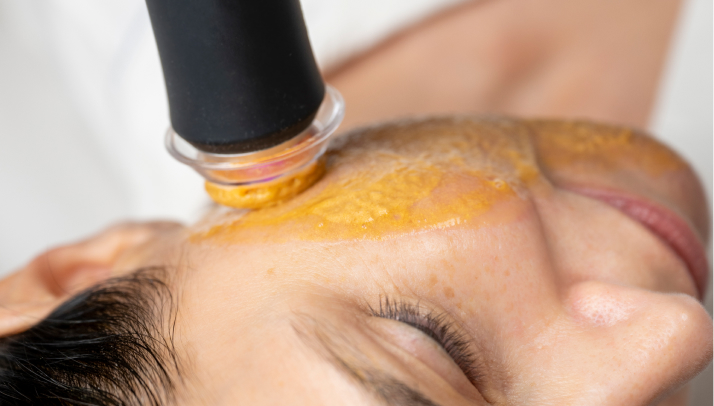
Skin Rejuvenation
Do you look older than you feel and wish you could turn back the clock to the days when your skin was bright and taut? If your goal is to look younger without invasive procedures, the anti-aging experts at CTHC and Trinity Medical Spa offer the perfect solution. Dr. Carroll and his expert staff provide skin rejuvenation to revitalize aging skin. Regain your youthful appearance with their expert assistance. Call the office to get started, or use the online booking tab today. For skin rejuvenation we offer your choice of two microneedling treatments: PRP which relies upon your body’s platlet rich plasma to restore the skin. It naturally stimulates your body’s collagen production.
We also offer VITTI-PURE, the gold standard in skin rejuvination. VITTI-PURE uses umbilical cord tissue to provide a support matrix abundant in young growth factors supporting repair. VITTI-PURE offers rich, biological materials, and growth factors bypassing the need to draw and spin blood. This is a “no-stick”, “no-spin”, “no-doubt” solution.
Skin Rejuvenation Q&A
What is skin rejuvenation? Skin rejuvenation can restore your youthful glow and give you back the unblemished, taut skin that aging often takes away. Trinity Med Spa provides rejuvenating skin treatments to resolve a variety of skin concerns, including:
• Wrinkles and fine lines
• Skin lesions
• Stretch marks
• Acne scars
• Surgical scars
• Uneven skin tone
• Areas of pigmentation
Treatment can also correct coarse, uneven skin texture, making your skin look and feel smoother. How does skin rejuvenation treatment work? At Trinity Medical Spa , skin rejuvenation procedures use RF microneedling, Subnovi Plasma Pen, Helix Co2 laser therapy PRP, and Vitti-Pure as an add-on as needed. Microneedling uses tiny needles to make small tears in your skin to stimulate new cell growth. This improves the areas of your skin that show signs of aging, including wrinkles, lines, and skin laxity. Your body responds to these actions as it would to any form of damage. The body’s repair mechanisms get to work, healing your tissues, producing replacement skin, and increasing production of new collagen fibers that help support your skin. The result is newer, more youthful skin and a glowing complexion. Will I see the results of my skin rejuvenation treatment right away? Skin rejuvenation isn’t an immediate fix, as it can take several months for the full effects to appear. However, there are changes taking place beneath your skin’s surface as your body works on producing new, unblemished, rejuvenated skin. Although it may take time to see the final results, skin rejuvenation is worth the wait. You’ll also be aware of a gradual improvement in your complexion and skin tone as the new skin grows during renewal. What are the advantages of skin rejuvenation?
The advantages associated with skin rejuvenation at CTHC and Trinity Med Spa include:
• Safe for nearly all skin types
• Safe for use on delicate skin
• Faster results than other noninvasive methods
• Precise depth control at multiple levels
• No need for anesthetics or sedatives
• Painless process
• No downtime
• Long-lasting results
In addition, skin rejuvenation offers significant advantages over surgical procedures and other forms of facial resurfacing. Skin rejuvenation treatment can take years off your appearance and help you feel more confident.
Call Trinity Med Spa to schedule an appointment, or request one online today.
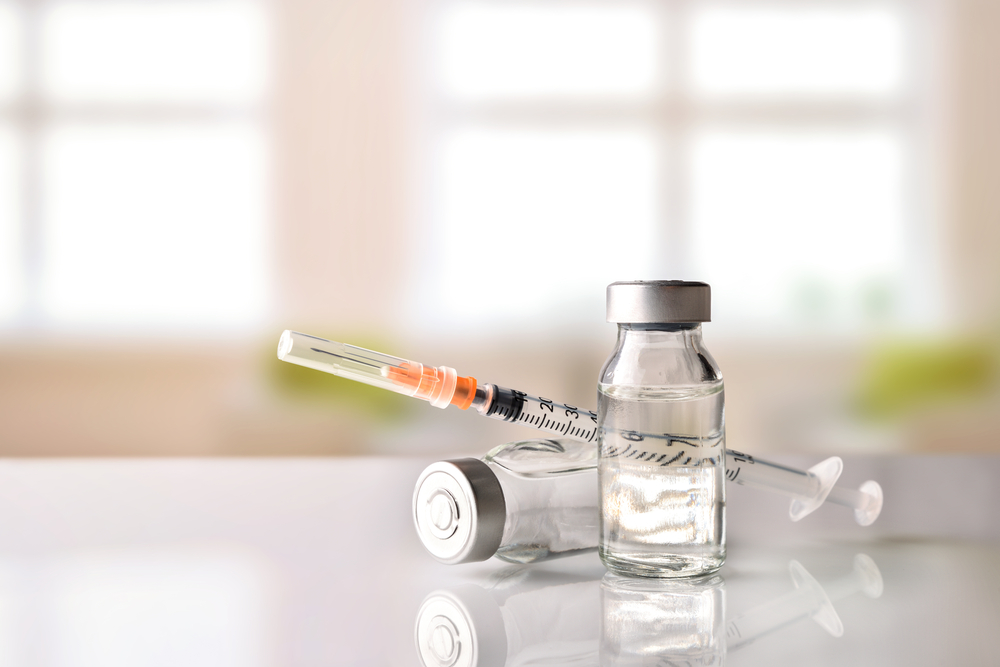
Peptide Therapy
Are you unhappy with unwelcome symptoms of aging, such as fatigue, weight gain, thinning hair, wrinkles, or sexual dysfunction? If so, simple anti-aging solutions are at your fingertips. At Carroll Total Healthcare hormone specialist Dr. Brent Carroll and his expert staff offer highly effective, holistic anti-aging treatments that help you look and feel younger. Call the office to learn more about your options.
Anti-Aging Therapy
What is anti-aging therapy? Anti-aging therapy available at Carroll Total Healthcare and Trinity Med Spa uses cutting-edge treatments to reduce bothersome signs of aging. The hormone specialists have many years of experience developing customized treatment plans for middle-aged and older adults. These plans provide superior results that take years off of your appearance. What are the benefits of anti-aging therapy? The many benefits of anti-aging therapy at Carroll Total Healthcare include:
- Younger-looking, healthier skin
- Fewer lines and wrinkles
- Fuller, thicker head of hair
- Improved sexual functioning
- Diminished vaginal dryness in women
- Reduced erectile dysfunction (ED) in men
- Weight loss
- Reduced body fat
- Smaller waist circumference
- Increases in muscle mass
- More energy
- Stronger libido
- Better workouts
- Increased bone density
- Stronger immune system functioning
Anti-aging therapy allows you to look younger, feel younger, and gain self-confidence. It can also reduce your chance of the hallmark signs of aging or developing age-related chronic diseases.
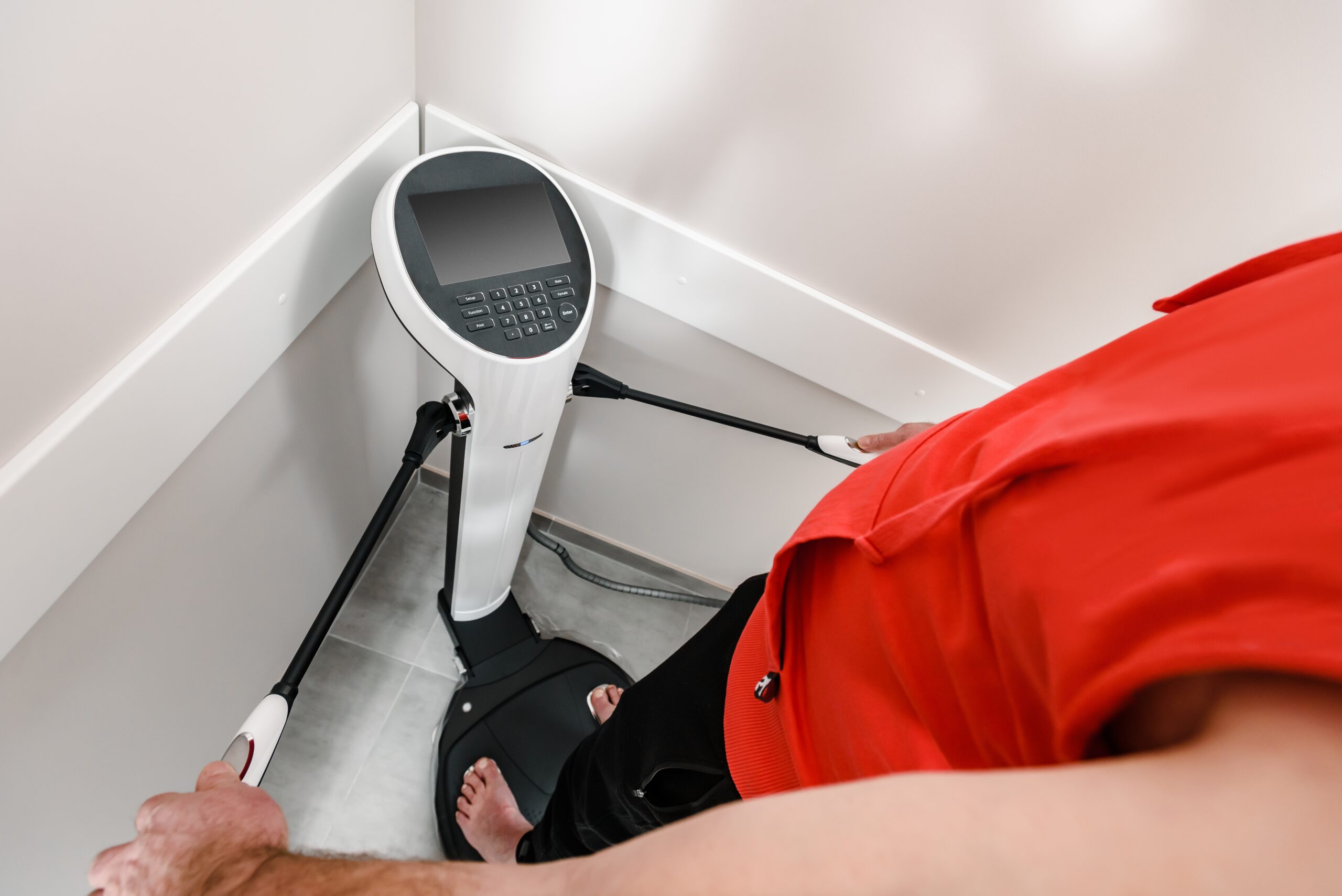
Weight Management
With aging often comes a slowed metabolism and undesirable weight gain, but you don’t have to carry excess body weight. At Carroll Total Healthcare Dr. Brent Carroll and his expert staff offer medically supervised weight loss to help you achieve your ideal body weight. Call the office to get started, or use the online booking tab today.
Weight Loss Q&A
Do hormones play a role in weight loss? Yes. Hormones play an essential role in weight loss. Unbalanced hormones can even prevent weight loss. As people age, it is essential to maintain optimal hormone levels in both women and men. Optimizing hormones is crucial for weight loss and also improves energy, stamina, and sleep quality. Proper hormone levels are also vital for increasing bone density, reducing body fat, managing inflammation, improving joint pain, restoring libido, and more. What are the risk factors for being overweight? In addition to hormone imbalance, other factors can contribute to carrying excess body weight. Examples include lack of exercise, poor dietary habits, older age, stress, and sleep deprivation. Some medical conditions or medications also boost your chance of gaining excess weight.
What are the benefits of medically supervised weight loss? Losing weight with the help of Carroll Total Healthcare offers numerous benefits, including:
- Reduced body fat
- Smaller waist circumference
- Reduced appetite
- Easier weight loss
- Medical supervision
- Weight-loss, energy boosting, and fat-burning injections
- Reduced cravings for unhealthy foods
- More energy
- Younger-looking appearance
- Stable blood sugar levels
- Improved insulin sensitivity
- Muscle mass maintenance
- Mental clarity
- Improved insulin control
- Reductions in emotional eating
- Improved hormone balance
- Better sleep
- Improved bone density
- Enhanced sexual functioning
- Reduced joint pain
- Stronger libido
Losing weight may help you look younger, feel younger, and have the best quality of life possible at any age.
How does my provider help with weight loss?
CTHC offers a synergistic approach to fat loss and improvements in overall wellness. The program utilizes scientific evidence to use the best methods for sustained weight loss. We leave nothing to chance. Using body composition monitoring, weight training , simple diet changes, supplements and even body sculpting machines to offer superior weight-loss outcomes. CTHC combines medicine with diet therapy to keep your appetite in check and reduce unhealthy cravings. The practice providers offer MIC injections, Tirzepatide, Semaglutide, lipotropic injections, and more. They also provide hormone replacement therapy, a treatment that restores your body’s hormone levels to a normal range. This often dramatically increases your metabolism to make weight loss easier. The goal is to create life changing weight loss that will be sustainable.

IV Therapy
If fatigue, dehydration, a weak immune system, or nutrient deficiencies negatively affect your health, the experts at CTHC and Trinity Medical Spa have an all-natural solution. We offer noninvasive IV therapy to enhance the way your body functions, looks, and feels. Call the office to learn more, or use the online scheduler today.
IV Therapy Q&A
What is IV therapy? IV therapy available at Trinity Med Spa uses infusions of fluids and nutrients to optimize your overall health and wellness. The treatment offers numerous benefits. It consists of a fluid drip and saline-based electrolyte solution with selected vitamins and other essential nutrients tailored to your unique needs. By bypassing your digestive tract, IV therapy delivers hydration and nutrition therapy with fast absorption. That means you feel better, faster. What are the benefits of IV therapy?
- Increased energy levels
- Stronger immune system
- Healthier skin, nails, and hair
- Fewer nutritional deficiencies
- Increased hydration
- Improved workouts
- Better overall health and wellness
- Fewer illnesses and diseases
- Revitalized appearance
- Detoxification
Your treatment session is a relaxing experience that often lasts 20-60 minutes. During treatment, feel free to rest, work, fall asleep, read a book, watch videos, or listen to music.
Infiniti Matrix Therapy: The Foundation of Regenerative Medicine
Stem cell therapy is easily one of the most misunderstood topics in wellness, often drawing controversy due to the simple lack of widespread education. The team at Achieve Vitality has discovered that despite stem cells being frequently featured in the news and other media, there is still so much work to be done in terms of education.
Understanding the basic science behind stem cell therapy, including the stem cell types, possible uses, and ongoing research and applications, is the first step in learning how Infiniti Matrix Therapy may be able to help you.
What are stem cells?
The basic definition of a stem cell is an undifferentiated cell that can be the catalyst for the regeneration of cells of the same type, from which other types of cells can be created via differentiation. Think of these cells as the “raw material” used to form all other cells, including those with specialized roles within your body. For example, through the process of differentiation, your stem cells can help generate new bone cells to mend an injury.
In simplest terms, stem cells are the foundation of your body’s internal repair system. Every day, your stem cells are working diligently to restore injured or declining tissue, repairing damage, and supporting optimal health.
Although we are all born with a plentiful supply of stem cells, both the number and functionality of those cells declines as we age. Health experts and holistic advocates began to wonder: what if we could find a way to replenish our bodies’ natural store of stem cells, enhancing its natural ability to regenerate, recover, and repair itself? And thus, the science of stem cell therapy was born.
There are several different types and sources of stem cells, each one with its own distinguishing characteristics:
-
Fetal/embryonic stem cells: This type of stem cell is found in embryos between three and five days old and have the magnificent capability to divide into more stem cells or transform into any type of cell. Embryonic stem cells are the literal beginning of human life as we know it. These stem cells are not used in stem cell therapies in the United States, as their use is both morally debatable and highly illegal.
-
Amniotic fluid stem cells: Extracted from the amniotic sac of a growing fetus, these stem cells are vital to human development but not ideal for use in therapies. They carry a large concentration of cellular debris, making them inconsistent and difficult to verify via cell counts.
-
Placental stem cells: Soured from the placenta, these stem cells are similar to amniotic stem cells; they are not particularly useful for therapy due to cellular debris and varying concentration.
-
Autologous stem cells: These are existing stem cells from within your own body, collected via a surgical procedure. Unfortunately, the process is expensive, invasive, and often high-risk, making autologous stem cells an option that suits few.
- Infiniti Matrix has emerged as the gold standard for stem cell therapy, originating in the umbilical cord. They are consistently concentrated, potent, robust, and tailored for therapies to serve specific needs and goals. Another advantage of Infiniti Matrix is that it is a safe and simple procedure, with a foundation in accepted medical practice and the versatility to suit a diverse range of individuals.
What is stem cell therapy?
Stem cell therapy has unlocked exciting new possibilities for regenerative wellness, radically changing how we pursue wellness of the mind, body, and spirit. At its core, Infiniti Matrix Therapy is based on the idea that our bodies already hold the power to repair, regenerate, and restore; it’s simply up to us to discover how to activate that power on a deeper level.
Using Infiniti Matrix, it is now possible to kickstart your body’s internal repair system, fighting back against disease and degeneration. In fact, Infiniti Matrix Therapies allow us to take a more proactive approach to long-term health, empowering us to support our body’s peak functionality without the need for invasive procedures or prescription drugs. Healing, strength, and regeneration are already encoded in your DNA – all you have to do now is equip your body with the resources it needs to achieve its fullest potential.
How is stem cell therapy used?
There is a wide range of applications for stem cell therapy, and we are continually learning more about how stem cells can be utilized. Infiniti Matrix therapy, which specifically utilizes human umbilical cord stem cells, is believed to be the most effective and beneficial stem cell therapy type. Its versatility and quality are unmatched, and the nature of these cells makes them highly likely to be successfully integrated into a diverse range of individuals’ bodies.
Ultimately, Infiniti Matrix Therapy is proving to be the solution to a problem that has long plagued humanity: the natural degeneration and disease processes. Because medical technology and advancements in regenerative wellness have made stem cells accessible via Infiniti Matrix Therapy, you no longer have to settle for less than the best when it comes to your personal health and longevity.
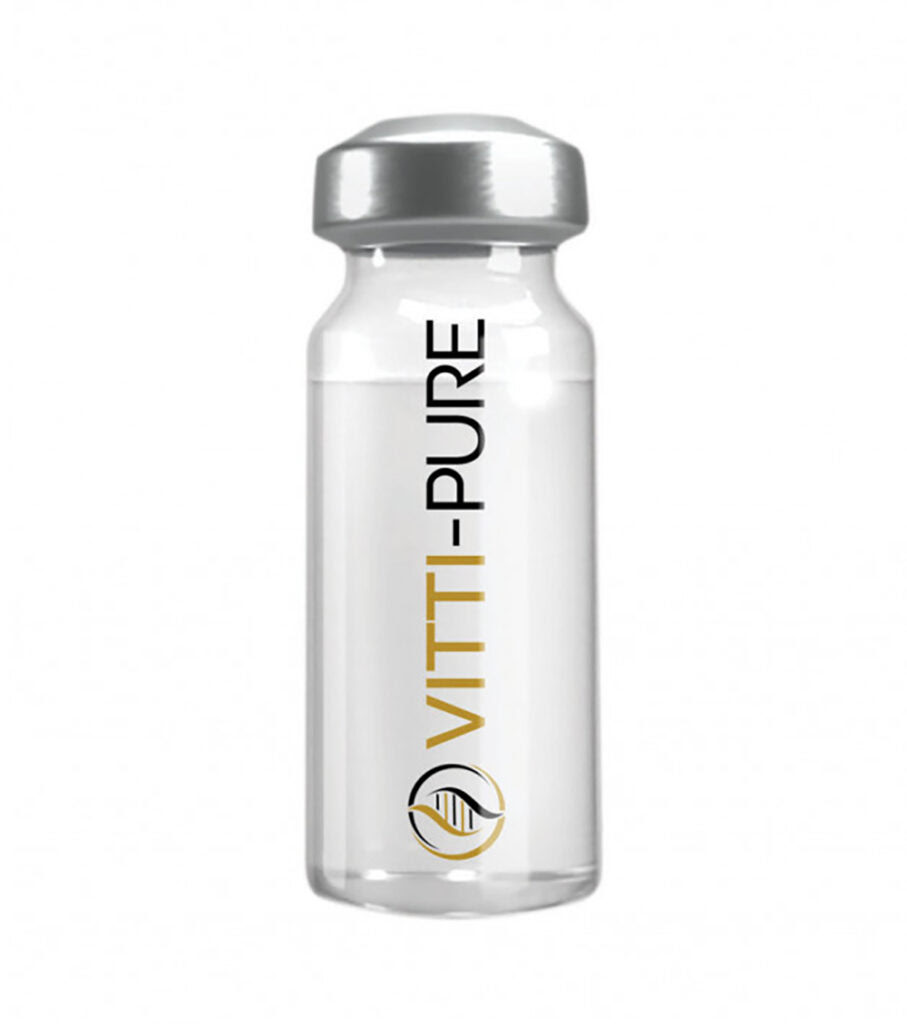
VITTI-PURE
Why Are Practices Choosing Vitti-Pure?
A “NO STICK,NO SPIN, NO DOUBT” PRODUCT. VITTI-PURE provides Protein Rich Support for homologous applications such as joint cushioning and tissue support. VITTI-PURE is an excellent source of glycosaminoglycans, hyaluronic acid, chondroitin, and glucosamine as well as naturally occurring proteins and lipids that provide excellent structural support.
PRP Is Not The Right Choice For Structural Support
VITTI-PURE contains a complex extracellular matrix with original relevant characteristics such as compressibility, flexibility, cushioning, and tensile strength. These characteristics are to encourage healthy mechanical activity of your joints and tissue which may support repair. PRP has been used incorrectly as a structural support matrix, but it is in fact NOT one. It’s only structural ability is a fibrin network made of an inflammatory fibrous non-globular protein. PRP is intended to be used to mix with bone graf materials to enhance bone graft handling properties. VITTI-PURE’s intended use is to support mechanical activity of joints and tissue through homologous use.
The Differences In Resource Support
PRP must rely on the body’s own available resources to support repair to the sight of injury. However, as people age, their body no longer carries an abundance of natural bio-materials that healthy support needs to take place. Because of this, low innate healing potential occurs which results in poor repair of the body. VITTI-PURE’s structural tissue extracellular matrix is dense with bio-materials that support the mechanical activity of joints and tissue therefore encouraging the repair.
FAQ’s
Tissues that physically support or serve as a barrier or conduit, or connect, cover,
or cushion in the donor are generally considered structural tissues for the purposes
of determining the applicable regulatory definition.
Examples of structural tissues include:
- Bone
- Skin
- Amniotic membrane and umbilical cord
- Blood vessel
- Adipose tissue
- Articular cartilage
- Non-articular cartilage
- Tendon or ligament
Structural tissues utility for reconstruction, repair, and replacement uses the original relevant characteristics of structural tissues such as support, strength, flexibility, cushioning, covering, and compressibility.
Structural tissues may contain both extracellular matrix and cellular components because any alteration of these components that relates to the structural tissue’s utility for reconstruction, repair, or replacement would generally be considered more than minimal manipulation.
For structural tissue, processing that does not alter the original relevant characteristics of the tissue relating to the tissue’s utility for reconstruction, repair, or replacement
Homologous use means the repair, reconstruction, replacement, or supplementation of a recipient’s cells or tissues with an HCT/P that performs the same basic function or functions in the recipient. Recipients Cells or tissues may or maynot be identical to the donor cells or tissues but may perform one or more of the same basic functions in the recipient cells or tissues performed in the donor. An HCT/P may perform the same basic function or functions even when it is not used in the same anatomic location where it existed in the donor.
VITTI-PURE is DMSO free, and our proprietary process is absent of harmful enzymes and chemicals to preserve integrity.
Manufacturer’s Intent
The Manufacturer’s intent is that these human cellular tissue products are regulated under 21 CFR 1271.10 under section 361 of the PHS Act. This includes following the June 2020 guidance document by the Food and Drug Administration (FDA), Regulatory Considerations for Human Cells, Tissues, and Cellular and Tissue-Based Products: Minimal Manipulation and Homologous in context to structural tissues regulated under section 361 of the PHS Act.
Testing And Validation
20% of every lot manufactured is sent for sterility and endotoxin testing by a 3rd party CLIA Certified laboratory. All of our processes have multiple safety and validation testing steps to ensure the quality and consistency of each lot.
Regulations
Vitti Labs’ VITTI-PURE may contain live cells but does not claim that it is dependent on the metabolic activity of living cells for its primary function. VITTI-PURE contains structural tissue. These structural tissues contain both extracellular matrix such as elastin, hyaluronan, collagen fibers, and fibronectin and naturally occurring tissue components such as growth factors, cytokines and nanoparticles for homologous application. VITTI-PURE is not reliant on the presence nor on the metabolism of the cells in this product to create a therapeutic benefit. VITTI-PURE does meet the criteria under 1271.3(d) as an HCT/P, and is regulated under 21 CFR 1271 and Section 361 of the PHS Act. Vitti Labs is and FDA registered tissue bank. We comply with FDA (Federal Drug Administration) regulations. Additionally, we are AATB (American Association of Tissue Banking) accredited, cGMP (Current Good Manufacturing Practices) certified, follow GTP (Good Tissue Practices), and WHO (World Health Organization) protocols and procedures. All VITTI LABS HCT/P products are regulated solely under section 361 of the PHS Act and the regulations in 21 CFR 1271.

EV Pure
Decellularized Growth Factors and Cytokines
EV-PURE is decellularized product consisting of nano-sized micropods containing growth factors. Cytokines and nucleic acids secreted from the membranes of placental derived Medical Signaling Cells. The natural components in this product support healthy cell-cell communication and provide anti-inflamamtory effects.
Therapeutic Benefits
Growth factors, Cytokines and Nucleic Acids are catalysts for whole-body health and regeneration. They alter inflammation, contribute to tissue and organ repair, support neural communication, enhance mitochondrial viability and participate in the transformation of aging cells.
EV-Pure Has Been Used By Medical Professionals To Offer Patients:
- Soft tissue repair
- Pain and joint management
- Cellular & organ health plus detoxification
- Immunomodulator and anti-viral
- Aesthetics and hair restoriation
- Restoring sexual wellness
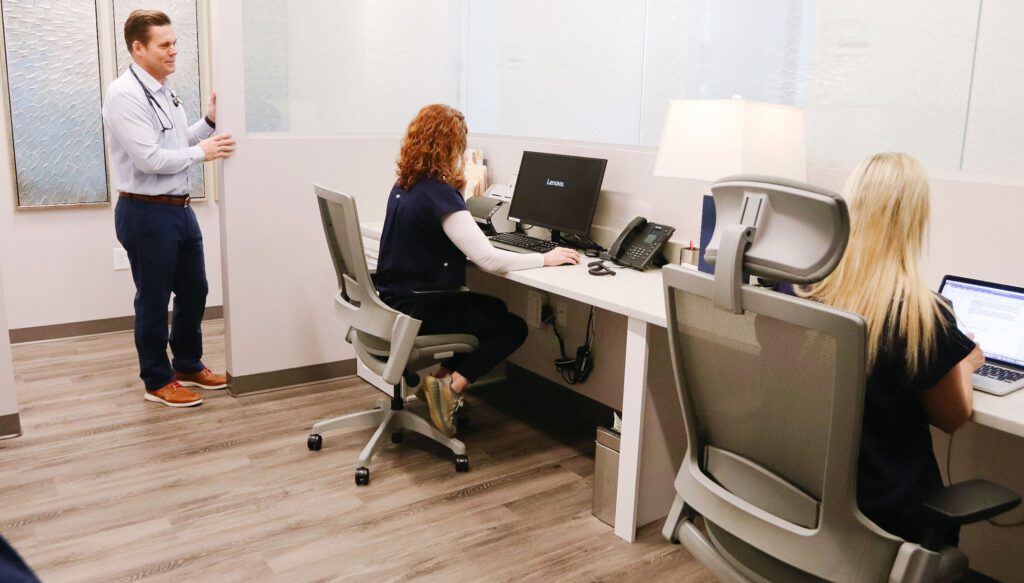
Patient Resources
Knowledge opens doors and allows us to take charge of our own wellness journey. If you have questions about our services, or if you’re just curious to learn more about medical spa services, these resources are for you.
What Our Clients Say
Medical Services
Your Health. Our Priority.
As a premier family medicine specialist in Cumming, GA, Carroll Total Healthcare offers a range of services to support our community. We prioritize holistic care strategies that build whole-person wellness. We’re eager to help every patient work toward a healthier future and a happier life.

